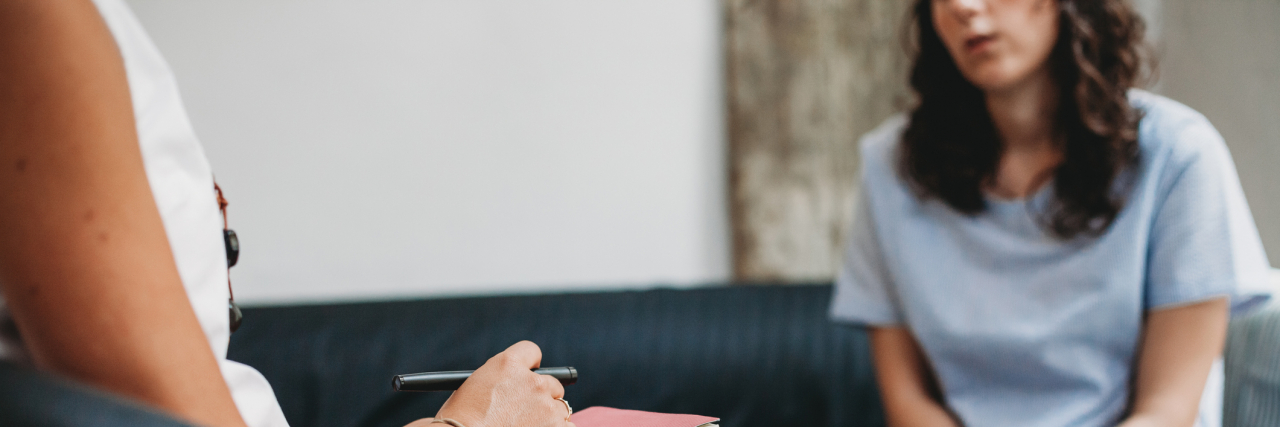The Problem With Saying ‘The Goal of Therapy Is to Get Out of Therapy’
Dependent is not a bad word.
I have been in a lot of therapy, and I am grateful for this. Some of it was very helpful, and life-changing — some therapy has saved my life. There is one statement I heard once that continues to confuse me, “The goal of therapy is to get out of therapy.” As I live my life with borderline personality disorder (BPD) and encounter both struggles and joys that come with recovery, I find this statement, “the goal of therapy is to get out of therapy,” to be unhelpful to recall as one who is still sometimes continuing to need and seek help.
Underneath that simple statement, in my view, is perhaps the message we are supposed to be independent, and that not needing treatment is the goal of therapy. In my view, the goal of therapy is to build a life experienced as worth living, and to develop skills to accept myself and contribute to the world. That is my goal. “Being out of therapy forever” and “doing it alone” is not my goal.
While I am glad sometimes I’m able to use skills alone, I am not successful all the time. I still feel a sense of shame for my “need” and dependency when I am struggling. And this statement, “the goal of therapy is to get out of therapy” is unhelpful.
For many people who live with mental illness, disability, and other health conditions, being totally independent is simply not possible. However, in my view, independence is perhaps not possible for anyone, whether you have a mental illness or not. Perhaps, none of us are totally independent. Elliot Kukla, a rabbi and disability justice advocate writes about this and his lived experience in a New York Times article, “In My Chronic Illness, I Found a Deeper Meaning.” He speaks of his life with chronic illness and trauma, and coming to terms with the truth we are not independent. He eloquently says:
“We are born needing care and we die needing care, and I am not exception. At brief moments in the middle of life we hold the illusion of independence, but we are always driving on roads we did not build, eating foods we did not pick or raise. Allowing the illusion of my own independence to drop away unmasked a fundamental truth of being human.”
As I continue to grow and do the best I can to live with my vulnerabilities and strengths, I hear a nagging voice say, “I should not feel a need to reach out for help.” I have come to see the very system that is there to help me, seems to sometimes perpetuate this idea that the goal is to 100% “do it alone.” But, truly, we all are dependent in some way. We all are connected in some way, too.
Dialectical behavior therapy (DBT) skills I use to live my life with BPD are helpful to bring me back to the reality of “connection.”
One of these skills is dialectal thinking.
1. The universe is filled with opposing sides.
Two things that seem opposite can both be true, for example, we can be both dependent and independent.
2. Everything and every person is connected in some way.
The waves and the ocean are one. The slightest move of the butterfly affects the furthest star.
3. Change is transactional.
What we do influences our environment and other people in it. The environment and other people influence us.
We are not alone. I see the beauty that exists in and through our connections to one another. In communities such as this, The Mighty, there is authenticity, willingness, and bravery when saying “I cannot do this alone” in a society that, to me, seems increasingly more individual.
I am grateful for embracing our growth within our struggles with illness and health, and our need to still rely on one another in ways, to be dependent. Dependent is not a bad word.
Getty image by lorenzoantonucci

